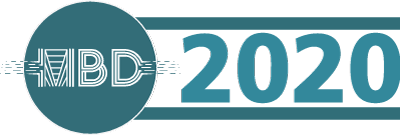Keynote Speakers

Dr. Claudia Marinica
Assistant Professor at Polytech’Nantes, University of Nantes / LS2N Research lab
Data Mining and Knowledge Representation Techniques for Museums
In this talk I will make a survey of my last works and projects that I carried on related to the use of data mining approaches and knowledge representation techniques in order to solve diverse problems in Digital Heritage domain in general, and Museums in particular. First, I will discuss the problem of understanding museums’ visitors behavior and the (big) data-related research challenges that this issue brings. Then, I will focus the discussion on the following challenges: data quality, data modeling and data mining, and I will expose a new model that we introduced for visitor movement representation and a set of reflections on data analysis. Second, I will discuss the problem of the conception of a query system of heterogeneous and distributed databases of different Cultural Heritage institutions, and more precisely in the domain of conservation restoration of artifacts. Here, different (big) data-related questions rise: are the data semantically ready to join the system?, are there any heterogeneity and ambiguity problems in the data?, can we build a shared conceptual model?, how can be queried heterogeneous and/or distributed databases?, etc. In this talk, I will propose a set of solution to the previous questions. The talk will end by exposing the different initiatives that have been developed in France in the years around Digital Humanities and Digital Heritage.
Short Bio
Dr. Claudia Marinica is Assistant Professor in the Polytech’Nantes Gradute School of Engineering of the University of Nantes, and she is conducting her research activities in the DUKe team of the Laboratoire des Sciences du Numérique de Nantes (LS2N) research lab. She holds a PhD in computer science, on the subject « Association Rule Interactive Post-processing using Rule Schemas and Ontologies – ARIPSO », since 2010 from Polytech’Nantes, Nantes University.
Her research focuses on the Artificial Intelligence field and she has a specific interest on Data Sciences: data analysis with unsupervised learning techniques, social networks analysis, and on Knowledge Representation: representation models and web semantic languages. The domain applications of her research focus on Cultural Heritage and Digital Humanities. She is currently conducting her research on (1) mining semantic indoor trajectories in museums, (2) evolution models for personal social networks with application on collaboration networks, and (3) digital humanities and more precisely the construction of vocabularies of reference in digital heritage. She is a co-founder of the working group DAHLIA (digital humanities and cultural heritage: data analysis and knowledge management), member of the direction council of the Digital Humanities Institute of CY Cergy Paris University, and elected member of the EGC Association. Web site: https://perso-etis.ensea.fr/marinica/

Dr Rebecca Kahn
Associate Researcher, Alexander von Humboldt Institute for Internet and Society, Berlin
Not Business as Usual: Museums, Data and Post-Lockdown Realities
The spring and summer of 2020 have been a turbulent time for museums. First, the lockdown around the world challenged the essence of their existence: what is a museum, if it is closed to visitors? Then, the #BlackLiveMatter protests forced many museums to face the issue of the origins and histories of their collections, which are often problematic. Business as usual, but on the internet, was, many museums realised, was not an adequate response. But how can museums approach the technical, ethical, and practical challenges of the new digital future, while maintaining their responsibilities to preserve and protect materials and encouraging research? And and what might this mean for institutions whose practice is often rooted in centuries-long traditions?
Short Bio
Dr. Rebecca Kahn completed her PhD in the Department of Digital Humanities at King’s College, London in 2016, with a study on how digital transformation manifests in the documentation, data models and internal ontologies of cultural heritage institutions, and how these changes can be read in their digital assets. Her current work explores digitisation in museums and archives, and the ways in which knowledge representation changes in these institutions as they and their materials become digital.
As 2017-2019 she was Director of Collections for the Pelagios Project, an international research project that used Linked Data and geodata to build connections between digital historical sources. She is also one of the coordinators of the DARIAH GeoHumanities working group.
